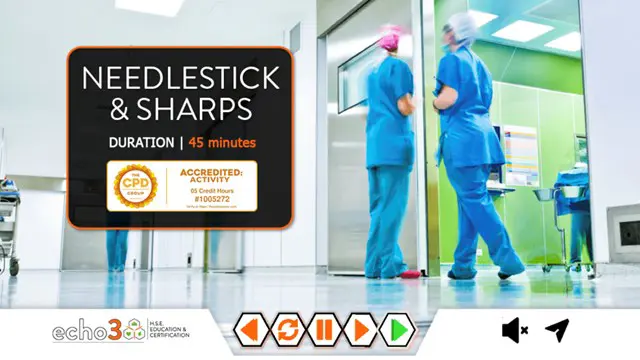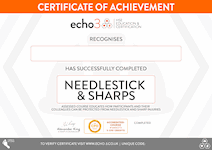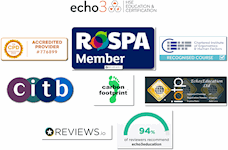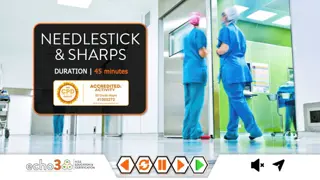
Needlestick and Sharps Injuries
Accredited Online Needlestick and sharps course with certificate
ECHO3 EDUCATION LIMITED
Summary
- Certificate of completion - Free
- Exam(s) / assessment(s) is included in price
Add to basket or enquire
Overview
If you, or your colleagues, work in an environment where you may come into contact with needles or other sharps, this course provides an awareness of the hazards and highlights safe working practices to reduce the risks to you and colleagues.
Certificates
Certificate of completion
Digital certificate - Included
CPD
Course media
Description
‘Sharps’ are needles, blades and other instruments that can cause injury by cutting or pricking the skin.
ACTIVITIES WITH POTENTIAL FOR NEEDLESTICK INJURIES
Home healthcare workers can be at risk for needlestick or sharps injuries when they:
-
Handle needles that must be taken apart or manipulated after use.
-
Dispose of needles attached to tubing.
-
Manipulate the needle in the client.
-
Recap a needle.
-
Use needles or glass equipment to transfer body uid between containers.
-
Fail to dispose of used needles in puncture-resistant sharps containers.
-
Lack proper workstations for procedures using sharps.
-
Work quickly.
-
Bump into a needle, a sharp, or another worker while either person is holding a sharp.
This course provides learners with a general understanding of needlestick and sharps injury hazards, avoidance techniques and prevention measures. It also explains the importance of reporting needlestick and sharps injuries and the steps involved with these reports.
Course Content
Module 1 - Sharps: The Risks
- What sharps are
- What a sharps injury is
- Causes of injury
- What the risks are
- Who is at risk
Module 2 - Sharps: The Law
- General health and safety law
- Sharps-related legislation
- Specific healthcare legislation
- Sharps risk assessments
Module 3 - Sharps: Reducing Risk
- How to reduce the risk of sharps injuries using the Hierarchy of Controls
- Employee precautions
- Hand hygiene
Module 4 - Sharps: Safe Disposal
- Legal requirements for sharps disposal
- Employer responsibilities
- Disposing of sharps safely
- Disposing of sharps bins
Module 5 - Dealing with Injuries
- Incident reporting
- First Aid
- Follow-up
Final Assessment
Who is this course for?
In ‘at risk’ healthcare occupations, needlestick injuries are the second most common cause of injury, after moving and handling. This accounts for 17% of all injuries to NHS staff alone however, many other occupations are at risk; including tattoo and body-piercing artists, beauticians, refuse collectors and cleaners.
Questions and answers
Is there any certificate available after successfully passing this course?
Answer:Hi yes you will be emailed a certificate once you complete the quiz at the end of the course. Regards ECHO3 team
This was helpful.
Reviews
Currently there are no reviews for this course. Be the first to leave a review.
Legal information
This course is advertised on reed.co.uk by the Course Provider, whose terms and conditions apply. Purchases are made directly from the Course Provider, and as such, content and materials are supplied by the Course Provider directly. Reed is acting as agent and not reseller in relation to this course. Reed's only responsibility is to facilitate your payment for the course. It is your responsibility to review and agree to the Course Provider's terms and conditions and satisfy yourself as to the suitability of the course you intend to purchase. Reed will not have any responsibility for the content of the course and/or associated materials.




